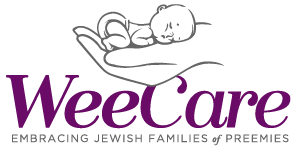Mothers of preemies who breastfeed provide their babies with milk especially formulated for preemie development. Preemies receive many benefits from breastfeeding including protection against infection, better developmental outcome, and reduced stress. However, there are many mothers who cannot breastfeed and while this is not ideal, most babies do very well with either donated milk or formula.
In the last 3 months of pregnancy, large protein molecules called immunoglobulins cross the placenta and are stored in the growing fetus. These immunoglobulins protect a newborn against the infections that the mother is immune to – for up to 5 or 6 months after birth. Although a premature baby misses out on some of this special protection because of the timing of birth, you can still provide him with immunoglobulins through breast milk. The milk you produce in the first few days after giving birth (colostrum) has the highest concentration of immunoglobulins, but you continue to give your baby extra immunoglobulins for as long as you give him your breast milk.
Human milk is important for the optimal growth and development of full-term babies, but it is even more important for babies born prematurely. If your baby is preterm, his stomach and intestines (which the NICU staff will refer to as his gastrointestinal tract, GI tract, or gut) are even smaller and less mature than the tiny, immature gut of a full-term baby.
If your NICU baby is premature, your milk will be different for the first few weeks than the breast milk of a mother who gives birth at term. Your body knows that your baby came early, and it provides milk that is better for the baby’s needs. For the first 2 to 4 weeks after birth your milk will contain more protein, fat calories, and calcium phosphorus, magnesium, zinc, sodium, and chloride that full-term milk. This early milk also has a laxative effect on your baby’s bowels, helping him to pass the first stools (called meconium). This is an important sign the GI tract is working, and also helps resolve jaundice. Nurses notice that babies fed their mother’s milk tolerate feedings better than those fed formula. Human milk is easy to digest, with very little left over in the baby’s stomach. Because formula forms larger curds during the digestive process than breast milk, babies given formula commonly have undigested milk in their stomach 2 to 3 hours after feeding.
Brain growth and development are rapid in the final 3 months of gestation. During the latter part of pregnancy, the fetal brain more than doubles in size and weight, and nearly doubles again in the first year of life and well into the second year. Several studies have suggested that breastfeeding improves mental development. In fact, greater amounts of breast milk intake (compared with formula) have been correlated with higher developmental outcome among the smallest preterm babies.
Although breastfeeding requires skill and maturity on your baby’s part, it can be less stressful than bottle feeding. Possible difficulties of bottle feeding (because of the fast flow of milk from a bottle) are so common that doctors and nurses have come to think of them as “normal” responses to feeding; irregular or pauses in breathing (apnea) with a resulting drop in oxygen saturation, slower heart rate (bradycardia), and blue skin color (cyanosis). Research has demonstrated that breastfeeding is less stressful than bottle feeding because the baby can “pace” the feeding, controlling the flow of milk and pausing when necessary. During breastfeeding, a baby stays warm, his heart rate remains regular, and oxygen levels stabilize (or even improve).
Another advantage of breastfeeding is that it provides your baby the warmth and physical closeness of skin to skin contact when he is ready to nurse. You are probably keenly aware that the amount of time you can spend holding, rocking, and cuddling your baby may be limited because he is in the intensive care nursery. As soon as your baby is ready to breastfeed, you’ll get to hold your newborn against your body. If you bottle feed, you can make an effort to hold your baby skin to skin – but when you breastfeed, you automatically have that contact at every feeding.

